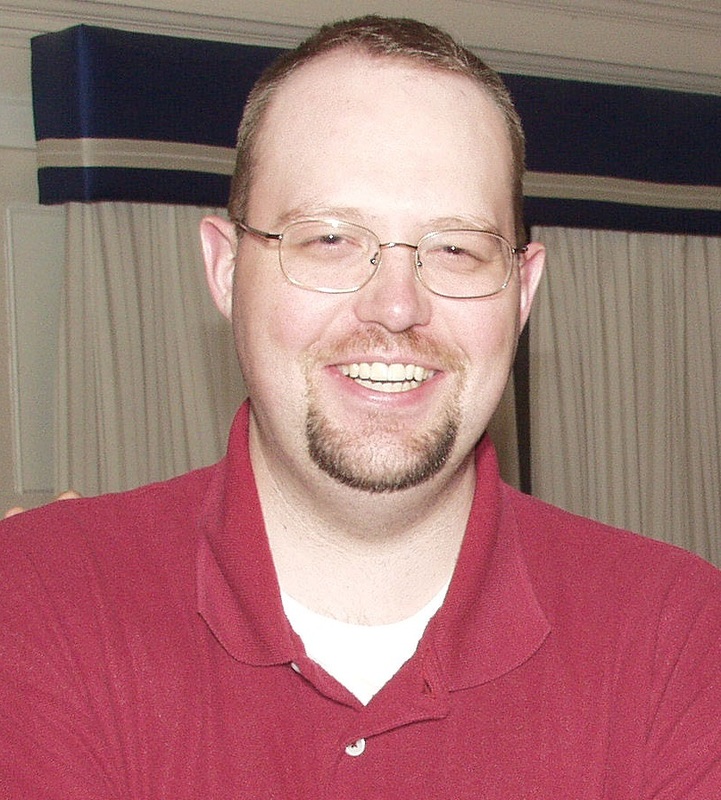Sister Newbold acknowledges a common singles attitude: Identifying yourself by what you don’t have. When you do that, you’ll live in a space where you’re deficient. Sister Newbold’s response is an effective one: Live in a space where you see yourself as you’ll be, because that’s how God sees you. By living “as though” God’s promises are fulfilled, you can be joyful now. Understand the challenge Sister Newbold recognizes the difficulty of reconciling as yet unfulfilled promises with the reality of LDS singles life. Her answer is to live “as though” those promises have been fulfilled, though she admits that’s challenging. She writes, “Given that God is a God of promises, it becomes hard at times for me to reconcile why certain promises have not yet been fulfilled in my life.” I’m sure many singles can relate. I myself felt that challenge a few months ago. In the midst of my most challenging semester of school ever, questions about my patriarchal blessing began to feel more demanding. And given my age, I began to wonder how my promised blessings will ever come to me. Sure, it’s easy to say, “Well, sometimes patriarchal blessings get fulfilled in eternity.” But that doesn’t apply to the married life the Lord promised me. Very clear and unambiguous language speaks of my temple marriage in this life and actions my children and posterity will take in this life. These and other blessings are promised to me in this life, not the next. Given I’m in my late 40s and not getting any younger, questions of how those promises would be fulfilled troubled me. At the time, I really struggled with those questions. Now I simply feel a quiet confidence somehow it’ll all happen. Consider three solutions  Sister Newbold’s answer to that challenge, as mentioned earlier, is to live “as though” promised blessings have arrived. How do we do that? Sister Newbold shares three suggestions. First, she suggests considering a variety of promises. LDS singles tend to fixate on the marriage they by definition don’t have right now. That focus blinds them from seeing other promised blessings they already have, many of which they take for granted. Recognizing these less appreciated but bountiful blessings invites gratitude and trust God will keep all His promises. Second, she suggests recognizing God’s hand in our lives. Many in today’s world focus on what they lack, and as long-time audience members will tell you, your focus becomes your reality. Focusing on lack creates a reality of scarcity, which inhibits the ability to feel joy. But focusing on what you have creates a reality of abundance. I really like how Sister Newbold extends that idea to the sacrament.
Third, Sister Newbold suggests helping the Lord keep His promises to others through Spirit-directed service. When you follow the Spirit’s promptings to help others, you can help answer their prayers. You can find joy in being the Lord’s hands. Trust in Him Honestly, I appreciate a perspective centered on our focus rather than the traditional and highly unhelpful ”Just hold faithful, and everything will be right in the next life.” Additionally, Sister Newbold readily admits that “trusting in His promises is not always an easy choice.” She also says “living ‘as though’ will look different for everyone.” I suspect that’s only true in the particulars. I could summarize what that looks like for her as making and keeping as many covenants as she can, in essence living all of the gospel she can. I think that would describe living “as though” for any LDS single. God will keep every promise made to every one of us. He has thousands of years of experience doing just that for the generations that came before us. And the Spirit can remind us of moments when He’s kept promises in our own lives. So we can trust He’ll keep every as yet unfulfilled promise. When we live“as though” by walking with faith He’ll do just that, we can be instruments in fulfilling His purposes, all the while experiencing the quiet confidence that somehow it’ll all happen for us. And that will bring us more joy in our journey.
0 Comments
But I also had a conversation with my PhD advisor, who wants to see much more out of me. That experience led me to reflect on what I have in my life and more importantly why. Reassessing the different elements in my life somehow brought me to President Nelson’s remarks from the last General Conference entitled “Make Time for the Lord.” In this address, President Nelson shared three ways in which we can make time for the Lord. Focus on the Savior  The first time we should make for the Lord is to fix our focus on Christ. President Nelson declared, “Nothing invites the Spirit more than fixing your focus on Jesus Christ. Talk of Christ, rejoice in Christ, feast upon the words of Christ, and press forward with steadfastness in Christ.” In my recent reflections, I’ve wondered how much of my focus is fixed on Christ. How often do I talk of Him? How often do I rejoice in Him? How often do I feast upon His words? How often do I feel the determination to press forward with steadfastness in Him? I’ve focused my scripture study this year on success and the path to prosperity. My study hasn’t yet concluded, but it’s already abundantly clear lasting prosperity comes as God’s blessing upon those who embrace true principles. This conclusion encourages us to follow the Prophet’s counsel to fix our focus on Christ. Later this month I’ll pivot my scripture study towards my annual tradition of studying the Sermon on the Mount to increase my discipleship. I’ve discussed this practice before on the program, and I expect it once more to increase the fixation of my focus on Christ. All are welcome to join me, but whether or not you do, find some way increase your focus on the Savior. Delight in the Sabbath  The second time President Nelson encouraged us to make for the Lord is to delight in the Sabbath day. He taught, “Make your Sabbath a delight as you worship Him, partake of the sacrament, and keep His day holy.” Consider that teaching. The Sabbath is a delight when we make it one. How do you make your Sabbaths feel delightful? Do they feel delightful to you? You can use that question to gauge how well you keep the Sabbath. The more delightful the Sabbath feels to you, the better you keep the day. And no matter how delightful the Sabbath feels to you, there’s always another level you can reach. Obviously you can feel more delight in your Sabbath if you don’t feel any. But if you do feel delight in your Sabbath, you can feel more. So the question is this: Are your Sabbath day activities what they should be? Or do you need to change something? Connect with the temple  The third time the Prophet pleaded us to make for the Lord concerns temples. President Nelson taught, “Please make time for the Lord in His holy house. Nothing will strengthen your spiritual foundation like temple service and temple worship.” Because my nearest temple has yet to reopen, I currently need to travel some distance to attend the temple. And so I’ve been meaning to get more into family history work in preparation for when my temple reopens. I say meaning to because I’ve done nothing more than occasionally dabble. Clearly the Prophet is calling me to repentance. And with that call comes an invitation to extend the Prophet’s admonition to every area of life. With all my responsibilities and everything in my life, am I making enough time for the Lord? We could each ask ourselves that question. If you haven’t considered it lately, I invite you to make time to consider it. In the end, if you haven’t made time for Christ, it won’t matter what you made time for. So make time for the Lord. When we make the time to consider what time we are making for what matters most, we can more easily connect with what matters most. In that way we can establish a better balance in life. And that will bring us more joy in our journey.
It wouldn’t be so bad if we’d stop comparing ourselves unfairly. Whether against other people or some idealized standard, many Latter-day Saints feel they fall short of what and where they should be. And many of those Latter-day Saints are single. They look at their lives and think they should be married by now. It’s then easy to jump to the conclusion that something must be wrong with them and that’s why they’re still single. Other LDS singles reach a corollary conclusion with just as much erroneous logic. They believe they’re not good enough — not handsome or pretty enough, not funny enough, not cool enough, not whatever enough. If only they were a more attractive person, they reason, then they wouldn’t be stuck in their single status. That’s why I love Elder Holland’s remarks. He reminds us that we are good enough, that we don’t need to bridge today the entire distance between where we are and where we want to be, that our journey can be joyful if we improve our approach to it. We can be perfect . . . eventually. Lighten up  That last word eventually is key. It reminds us that our journey is more than just a few steps. Our journey comprises many, many steps — more than we can possibly take in this mortal life. Perfection, the final result of reaching our final destination, won’t come in this life. Why then give us the commandment to be perfect? Elder Holland believes at least one reason is to give glory to God and show what we can achieve in the eternities to come. Knowing the perfection of God can create gratitude that our imperfections need not be the end of us. God in his perfection will make up for what we lack. Of course, that doesn’t justify ignoring our covenants. Elder Holland explains,
How often do we LDS singles criticize ourselves for whatever failings we have? When we let go of our need to be perfect now, we’ll find it easier to let go of our repeating patterns of self-criticism. Look for good enough  Elder Holland reminds us that “except for Jesus, there have been no flawless performances on this earthly journey we are pursuing.” He then advocates avoiding excessive expectations for achieving perfection in others as well as in ourselves. That got me thinking. Many LDS singles expect perfection in the eternal companion they seek. They create this ideal that very few if any could actually reach. After all, you don’t want to spend eternity with imperfect. But by limiting their prospective candidate pool, they limit their probability of success. They make it harder to find that eternal companion. Elder Holland reminds us that no one is perfect. That means the eternal companion you’re looking for is imperfect. If you go about looking for perfection, you’ll not likely find your eternal companion because that imperfect person will never fit your insistence on perfection. Since the person you seek is not perfect, then you should really be looking for good enough. That doesn’t mean you have no standards. Good enough implies that some standards have been met. You just don’t want so many standards that you reduce your likelihood of success too much. Having standards that are too exacting can yield the same result. Balance is the key. Be willing  When we partake of the sacrament each week, we do not pledge to be perfect. We do not witness we’ll take upon ourselves the name of Christ, always remember him, and keep his commandments. We witness we are willing to do these things (see D&C 20:77). That pledge of willingness allows space for slips and failings. We strive for perfection while at the same time forgiving both ourselves and others for shortcomings. If we were perfect, we wouldn’t need saving. So we don’t need to be perfect to be saved. We just need to be good enough — good enough to receive the gift of grace that bridges any gap. And if we just need to be good enough, then that’s all anyone else needs to be as well. I love Elder Holland’s concluding remarks:
May we all stop looking for perfection in this mortal life while never stopping to strive after it as part of our more eternal journey. When we do, we’ll have more joy in our journey.
 This week I’m taking vacation so I can work. Work is piling up at my job, I’m neglecting activities needed for my own businesses, and even things in my personal life are slipping. I need some space to unearth myself. And my solution for getting it is taking a break from my usual commitments, clearing out the clutter, resetting my priorities, and starting anew. We all have times like this. Many marrieds in the Church think we singles have so much time on our hands because we don’t have families of our own. That’s obviously not true for single parents. They have constant double duty. But the lives of LDS singles who don’t have children can be just as busy, as my recent experience testifies. Last week I extolled our need to live in the moment to get all of the joy out of life. I did so with the full understanding that sometimes life happens, making it difficult to live in the moment. With so many good things pulling us in different directions, it’s easy to get swept away in the cares of right now. How can you have the presence of mind to live in the moment? Make a space  I heard a speaker in sacrament meeting give a great answer to that question. She described the challenges of being a young mother who needed to attend to her children while also being able to engage regular scripture study. Obviously young children require a great deal of attention, so how do you find that balance? Her answer was to arise early enough before her little ones awake so she can focus on immersing herself in the scriptures before they cry for attention. In other words, she made a space in which she could live consciously without other interests tugging on her. Sometimes living with intent is hard. It’s really easy to allow the concerns of right now to sweep us away. And sometimes those concerns yell so loudly and incessantly it’s hard to find any joy in the moment. Yet we can’t get so busy with the everyday that we don’t fill our souls. We can’t stay happy in the moment unless we stop long enough for the Lord to feed us. And that requires us to make conscious choices to be fed and nourished. It's about the journey
forward . . . That’s how winning is done!” Living fully isn’t about reaching an ideal. It’s about struggling to reach that ideal. It’s not the destination. It’s the journey. Sometimes moving forward means standing still. When life seems to crowd in around us, we need to choose consciously to stop and clear the space we need to nourish ourselves. And every aspect of us needs nourishment. Our most important aspect to nourish is the spirit. Regular prayer and scripture study can work wonders. But we need to clear sufficient space and be conscious in our approach for them to be most effective. Just going through the motions won’t feed our souls.  Likewise we need to nourish the heart. Quality time with family and friends as well as engaging regular opportunities for service make life meaningful and enjoyable. Again, going through the motions won’t nourish us. We also need to nourish the mind. Reading good books rounds our character and encourages us to emulate virtue. So can worthy cultural events. But in order to reap the benefit, we need to clear the space they need to exist. And we can’t forget to nourish the body. This means embracing healthy eating habits and regular exercise. But it also means having healthy financial habits and improving the skills needed for our career. Of course, how you choose to nourish yourself is your choice. Just make sure your choice is yours. Do what you do not because of how it will look to others but because of how it looks to you. Make the time to fill your soul. Life will always try to knock you down, but you can better weather the storm with the inner strength that comes from nourishing all the aspects of yourself.
 If you’re an LDS single who hasn’t heard some ignorant, insensitive remark from our married friends in the Church, then you better buckle up. Your ride is about to get a little bumpy. We’ve all been there. From asides in casual conversation to statements in class lessons, we LDS singles have been made to feel not completely accepted because we don’t have our own family. Often we hear some variation of “get with the program.” Last time I checked, the “program” is making and keeping as many covenants with God as we can. Of course we should strive to make every covenant possible. But sometimes that means doing the best you can in this mortal life — however far that gets you — and then trusting in the Lord to make up the rest. Still, some of our married friends constantly hit a nerve. We want to tell them a thing or two. Sometimes I have, using references to a place where the sun doesn’t shine. But that was before I changed my way of thinking. Now I just tell myself “Babes in sacrament meeting.” The parable of babes in sacrament meeting  If you’ve been to a general membership ward (note I avoid the atrocious term family ward), you’ve rarely if ever experienced an administration of the sacrament in silence. That’s because little children often break that silence. This last Sunday was no exception for me. The children seemed especially restless. And I recalled just a couple of weeks ago when a child cried out, “No, Mom! That’s mine!” It all adds to an atmosphere that at least superficially seems like anything but reverent. Of course, no one blames the child. We might cast a nasty look at a parent of a particularly obnoxious child and think, “Hey, why don’t you do something about your kid?” But we never blame the child. And we all know why. The child is innocent. The child doesn’t know any better. It makes no sense to hold children to a standard which they cannot reasonably meet. Likewise, many of our married friends, and particularly our leaders, have no idea what we LDS singles experience. Because they married young, they don’t know what it’s like to be older and single in the Church. And older could mean you’re 25, 35, 45, or more. It’s not fair for us to expect them to avoid saying and doing insensitive things when they simply don’t understand completely what we experience. The LDS singles experience must be had to be understood. Because many of our married friends never really experienced that, they simply don’t understand. So why should we respond to their insensitivity with the expectation that they should understand? That’s not reasonable. They’re babes in sacrament meeting. Seek first to understand  I’m not saying our married friends shouldn’t try to understand us singles. Nor am I advocating we singles quit trying to be understood. The desire to be understood is a basic human need. At the same time, we aren’t likely to be understood when we don’t first seek to understand others. Gandhi was right when he said we must be the change we seek in the world. The insensitivities we LDS singles experience within our subculture will not cease until we LDS singles take the lead by following the Savior and exercising patience. We need to remember babes in sacrament meeting. When we exercise patience with our leaders and other married friends in the Church while seeking first to understand them, we clear a space that invites them to understand us. Good-hearted people will respond by filling that space with desires to understand us. The godly desire to understand then outweighs the natural desire to be understood.  Those who haven’t lived our LDS singles experience cannot fully understand it. But that doesn’t prevent others from achieving a partial understanding. Certainly, if we are to live in Zion, singles and marrieds need to be reaching after all the understanding of each other possible. We should never use failure to achieve totality to justify not trying to achieve what part we can. The change we LDS singles truly seek in our culture — one in which our married friends help us to feel truly a part of the fold of God — must start within us. It’s time for us to quit sitting on the sidelines waiting for things to change and start making that change happen. It’s time for us to stop criticizing others for what they cannot reasonably do and start looking inside ourselves for the seeds of patience and understanding that will sprout a better experience for everyone. Let us look to the Savior and follow His example of patience. And it can all start with four simple words: Babes in sacrament meeting.
 You must make conscious choices to own your life. The reality you construct for yourself is one of the most important of those conscious choices. In Episode 1 of the Star Wars movie series (yes, I’m an enginerd), Jedi master Qui-Gon Jin wants to train young Anakin Skywalker in the Jedi arts but is forbidden to do so. So he tells Anakin to watch him closely. “Always remember,” he then says, “your focus determines your reality.” That’s some really great advice for all of us, even if you don’t aspire to be a Jedi knight. An experience with the principle  During sacrament meeting in a former ward, I shared a pew with a young couple and their two very rambunctious and obnoxious boys. When the tray reached our pew, the young father made sure his family received the sacrament. He then passed the tray back to the Aaronic Priesthood holder. At first I couldn’t believe he had denied me the sacrament. Never have I ever imagined that happening to me. I thought to myself, Does he not know that I am here? Yet I observed the great effort required to keep one of his sons somewhat settled. His wife was obviously exasperated just as much with the other one. I then realized that I really was oblivious to him. It wasn’t because he didn’t care. It wasn’t because he was married and I was single. It was because he focused so much on his son that someone sitting not two feet away was outside of his world. His focus had determined his reality. LDS singles don't need to feel dissatisfied with their lives Many singles who focus on the eternal companion they don’t have can enter a serious depression. They can become so focused on what they don’t have that they can’t see anything but a dissatisfying condition. They feel forgotten and lost in a sea of people living lives they want but don’t have. I once felt like that, but not any more. You don’t have to feel that way either. If you want to be a part of your ward’s reality, then get inside their focus. Make meaningful contributions to the lives of other ward members. You don’t need a calling to make that happen. You need only to recognize a need and then work to fill it. With that focus, your reality will be much more enjoyable. Your problem is not that you're single  If you think your solution to a dissatisfying life is getting married, think again. And then change the way you think. Your focus determines your reality. No, changing the way you think won’t make your eternal companion magically appear. I’m not talking about a magic lamp with a genie inside. And yet I am. When I was incredibly focused on what I didn’t have, that way of thinking wasn’t making me a happy me. And an unhappy me is an unattractive me. Changing the way I think didn't make me instantly married. My physical circumstances did not change. No attractive woman in a belly dancer costume appeared. I was just as single as I’ve always been. But changing the way I think did make me instantly more marriageable. The way I perceived my circumstances changed. I felt much better about myself and my future prospects. That change made me a much happier me. And that happier me translated into a much more attractive me. Why? Because most people don’t want to spend twenty minutes let alone eternity with someone who isn't happy. Being that happier me means that someone will more likely want to share my life with me, whether or not she wears a belly dancer costume. If all I see in my life is a collection of negative emotion, then how can my reality be anything different? And who would want to share that with me? There is no greatness or glory in darkness. So what's your reality? Do you like your reality? If you answered no, then what's your focus? Your focus determines your reality. If you want to change your reality, then change your focus to one designed to produce the reality you want. |
Author
Howdy! I'm Lance, host of Joy in the Journey Radio. I've been blogging about LDS singles life since 2012, and since 2018 I've been producing a weekly Internet radio show and podcast to help LDS singles have more joy in their journey and bring all Latter-day Saints together. Let's engage a conversation that will increase the faith of LDS singles and bring singles and marrieds together in a true unity of the faith.
Comment
Joy in the Journey Radio encourages the free discussion of ideas but reserves the right to remove and/or block comments which do not conform to LDS standards.
Donate
Joy in the Journey Radio offers many free resources to help LDS singles everywhere, but it certainly isn't free! Help Joy in the Journey Radio in its mission to improve the lives of LDS singles by donating today.
Posts by Month
December 2022
Categories
All
|






 RSS Feed
RSS Feed